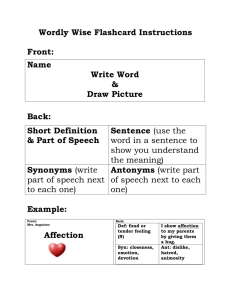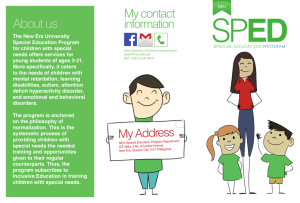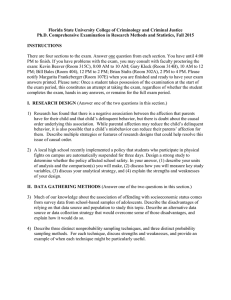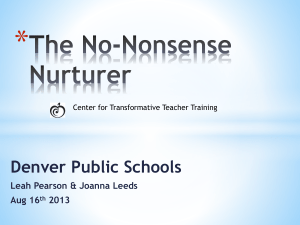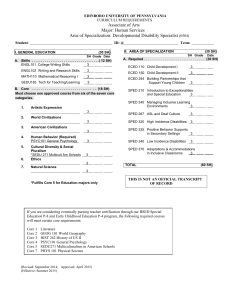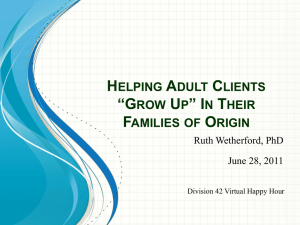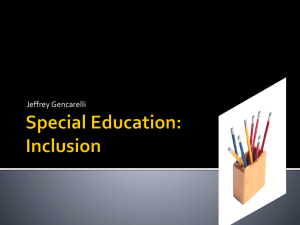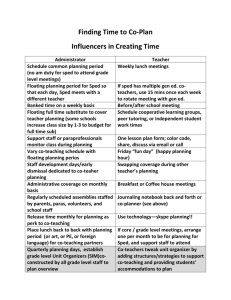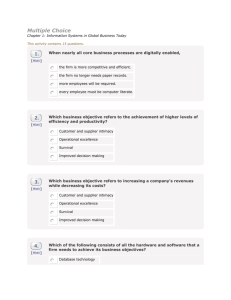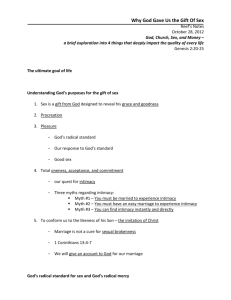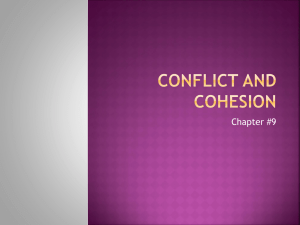Personal Family History Systems Paper
advertisement
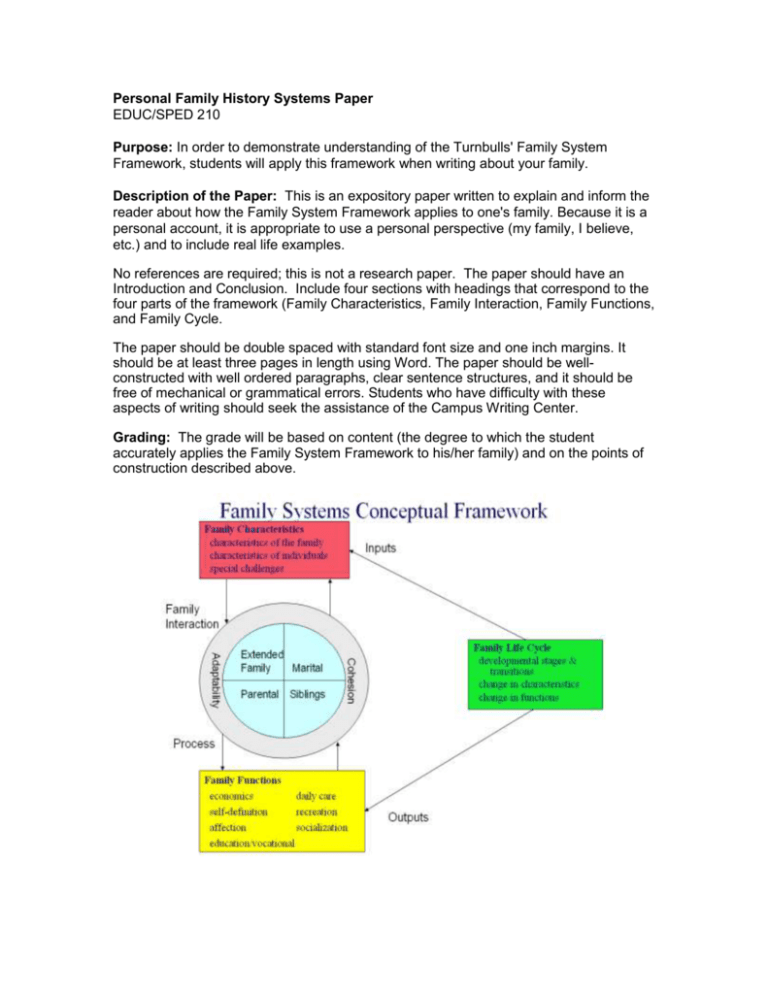
Personal Family History Systems Paper EDUC/SPED 210 Purpose: In order to demonstrate understanding of the Turnbulls' Family System Framework, students will apply this framework when writing about your family. Description of the Paper: This is an expository paper written to explain and inform the reader about how the Family System Framework applies to one's family. Because it is a personal account, it is appropriate to use a personal perspective (my family, I believe, etc.) and to include real life examples. No references are required; this is not a research paper. The paper should have an Introduction and Conclusion. Include four sections with headings that correspond to the four parts of the framework (Family Characteristics, Family Interaction, Family Functions, and Family Cycle. The paper should be double spaced with standard font size and one inch margins. It should be at least three pages in length using Word. The paper should be wellconstructed with well ordered paragraphs, clear sentence structures, and it should be free of mechanical or grammatical errors. Students who have difficulty with these aspects of writing should seek the assistance of the Campus Writing Center. Grading: The grade will be based on content (the degree to which the student accurately applies the Family System Framework to his/her family) and on the points of construction described above. Format for Paper: Name SPED 210 Section A or B I. Introduction Briefly introduce yourself II. Characteristics of family a. Family membership, size, etc 1. Cultural/ethnic factors 2. Socioeconomic status 3. Geographic location 4. Nature of exceptionality 5. Family health 6. Coping styles III. Family Interaction a. Marital: husband & wife b. Parental: parent & child c. Siblings: child & child d. Extrafamilial: extended family, friends, professionals e. Boundaries f. Hierarchies g. Input/output h. Rules of interaction (cohesion and adaptability) IV. Affection (intimacy, nurturing) a. Self-identity (belonging, strengths/weaknesses) b. Affection (intimacy, nurturing, etc. c. Economic (conditions, income sources) d. Daily care (health, food preparation, transportation) e. Socialization (social skill development) f. Recreation (hobbies, individual and family) g. Educational/vocational (career, work ethic, homework) V. Family Stages a. Beginning family b. Childbearing family c. Families with preschool children d. Families with school age children e. Families with adolesents f. Launching g. The middle years h. Aging families VI. Conclusions a. Discuss I, II, II, IV
